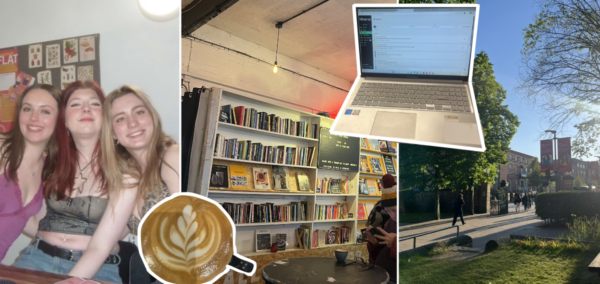
Seven must-know tips for any Lancaster students considering studying abroad
Here’s some of the essential tips if you’re thinking about heading overseas
With the right preparation, studying abroad can be an unforgettable experience—here’s how to set yourself up for success.
1. Research the right destination for you

A good place to start is researching the universities available for your course. Visit their websites to explore modules, facilities, and campus life. You might also find virtual campus tours on YouTube or Instagram.
Don’t forget to consider the city or town where the university is located. If you enjoy a lively social scene, big cities might offer more activities and events, while smaller towns may feel quieter and more close-knit. It’s important you find a place you’ll feel comfortable, especially if you’re heading far from home.
2. Attend the Global Experiences socials
Chat with students who’ve been there, done that! They can give you real insights into daily life, local culture, and how the uni actually runs. Plus, you’ll meet other students interested in the same regions or even the same universities.
3. Look into accommodation

On-campus housing is often a more affordable option and provides the convenience of being close to classes and immersed in student life.
In some countries, like the United States, shared dorms or “residence halls” are the standard for many students. These can be great for making new friends and feeling part of the campus community. But if you’re someone who likes your personal space and the thought of someone sleeping three feet away from you makes you question your life choices, you might want to consider other housing options.
4. Think about finances
Most Read
Some destinations can be more expensive than others, so you might consider taking on a part-time job to help manage your expenses. Before making plans, check whether your student visa will allow you to work part-time while studying.
5. Plan to get involved

Start by checking what societies, sports teams, or student groups the host university offers – there’s usually something for everyone. Whether you’re into football, photography, or joining an international student group, it’s an easy way to make friends and settle into your new surroundings.
6. Think about your holidays
Academic calendars vary around the world. In Australia, the academic year usually kicks off in July, so say goodbye to a long UK summer. But on the bright side, you’ll get a long “summer” holiday over Christmas—flip-flops and barbecues instead of snow and mince pies.
Look into when breaks are, especially if you’re planning trips home or adventures abroad. After all, holidays are the perfect opportunity to explore new places and make the most of your time abroad.
7. Double-check deadlines
Visas, health insurance, and other paperwork can take a while to process, so don’t leave it to the last minute. Start early to avoid the stress of scrambling when you realise your passport expires next week. Also, make sure you know the deadline for submitting your top choices to Global Experiences—nothing like missing it because you were too busy caught up in uni deadlines.
Studying abroad is a big step, but with some prep and a sense of adventure, you’ll have an unforgettable experience. Safe travels!



















